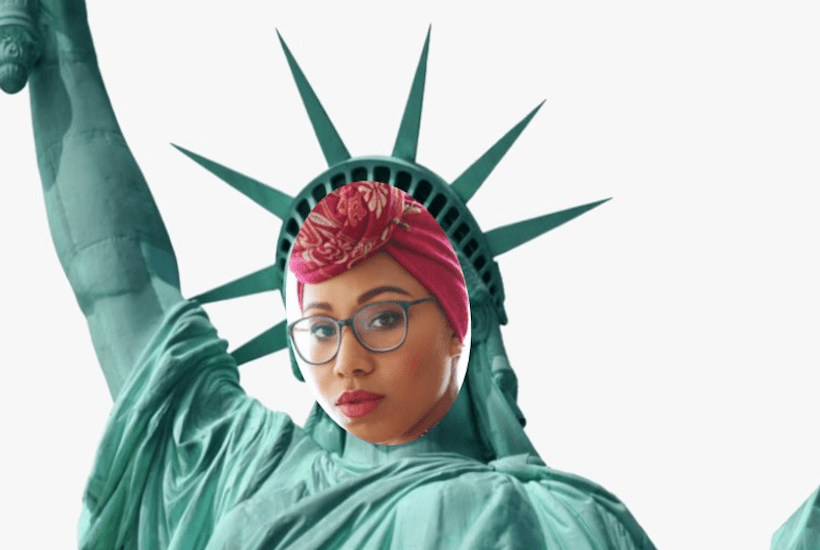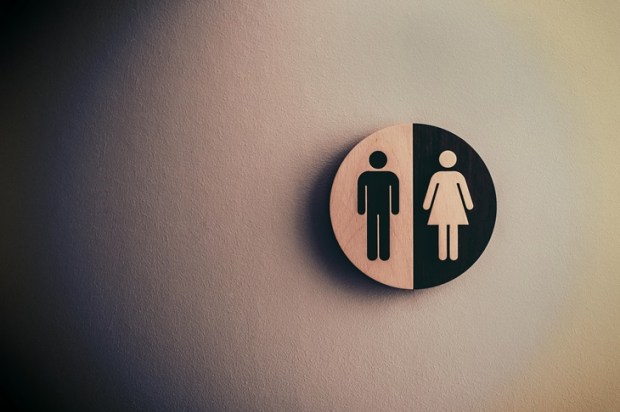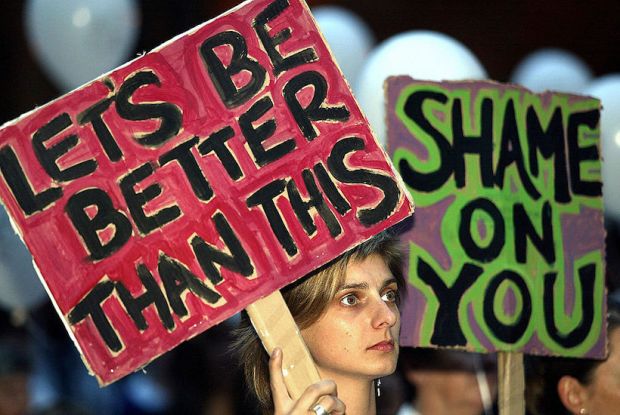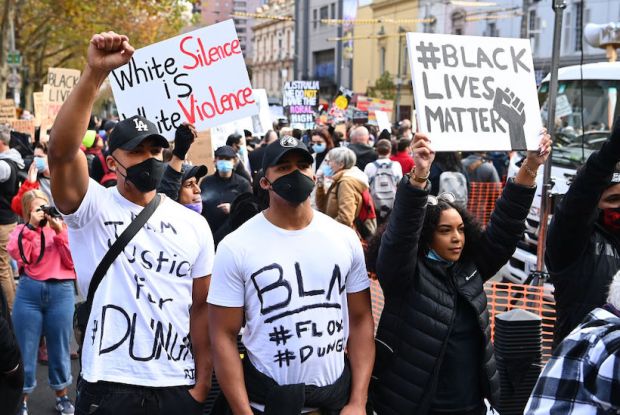As many have remarked over the years, it is somewhat of a mystery why millions of people from the developing world continue to migrate to Western countries, which we are told are oppressive, xenophobic, racist shitholes, with hundreds of millions more aspiring to join them in those shitholes.
It’s not as much of a mystery why the same left-wing critics who see their countries as cesspools of white supremacy and everything that’s bad are also in favour of open borders and mass migration by the people of colour. The left simply hopes that changing the demographic composition of their nations is the quickest and the easiest way to change the political direction of their nations. Based on the generally accurate observation that migrants from the developing world tend to strongly support left-wing political parties, the left wants to create a new, permanent, dominant political coalition to keep themselves in power while keeping the forces of reaction at bay. Swamping the native xenophobes with new arrivals might be one way to combat the alleged endemic racism, but it feels a tad callous to use millions of immigrants as cannon fodder, inviting them with arms wide open to come and suffer the systemic white oppression in their new homes.
And yet, by millions they come.
I was reminded of all this as a migrant myself (albeit a white one, so it doesn’t count) when reading (who else?) Yassmin Abdel-Magied enthusing in Time magazine (yes, it still exists) about the anti-racist revolution currently sweeping the world:
The United States is alight with the flame of revolution. Like wildfire, it spreads, and it has been a long time coming. But revolution is borderless, and racism is not solely an American problem.
Though the murder of George Floyd at the knee of police was the most recent spark, the fuel has been pouring for decades. Widespread police brutality in an environment of racialized poverty and inequality have led Black people in the United States to feel there is no option but to overwhelm the streets. Years of peaceful protest and court proceedings brought neither change, nor justice. And so, uprisings; the ferocious cry of the unheard.
“Bliss was it in that dawn to be alive, But to be young was very heaven!” to borrow from Wordsworth’s paean to the French Revolution (titled suggestively “The Prelude”, presumably to the guillotines).
As Abdel-Magied reminds us repeatedly, the revolution is universal because so is the problem: “The structural racism underlying police brutality in the United States thrives globally, including in Australia and Britain… The system of white supremacy is alive and well.” She knows that as “someone who grew up in Australia, lives in the United Kingdom and travels often to work in the United States.”
One has to feel sorry for Abdel-Magied, a refugee from Sudan, who somehow always seems to go from the frying pan into to fire: from growing up in a war-torn Sudan to living and becoming a celebrity in a racist Australia, then escaping from a racist Australia to an equally racist Great Britain, and now with frequent work-related travel to perhaps an even more racist United States. Wherever she goes there she is and so is the white supremacy. Seems like a case of bad luck or maybe some unconscious masochism. Of all the places in the world, why would you always be ending up in deeply racist societies where everyone apparently hates you? I’m checking myself right now, as it probably is my privilege speaking, but as someone who has left a then communist Poland to seek freedom, capitalism and democracy, I did not then end up Romania, followed by China, followed by Cuba, followed by North Korea, but intriguingly chose Australia instead. Granted, not everyone can move exactly where they want to move, but pretty much everyone can avoid moving to where they don’t want to move. With so many countries around the world where racism is not a problem and white supremacy is non-existent, why voluntarily subject oneself to the horror of life in America, Australia or Britain – or elsewhere in Europe for that matter?
The rest of the article lists a litany of historical crimes – slavery and slave trade, racial classifications, white colonialism and settlement, dispossession and genocide of native populations – and current injustices – “racialised poverty” and “systemic inequality”, “structural racism”, police brutality, mass imprisonment (“Britain and Australia disproportionally kill and incarcerate Black and Indigenous people.”). It’s a critical racial theory bingo, and whiteness is to blame for pretty much every evil that has befallen the humankind since the time immemorial.
It’s a truth universally frowned upon that just about every group of people throughout history and throughout the whole world has engaged in “othering” others and outward-directed violence. Imperialism and slavery have been practiced by every race and ethnicity on every continent. Wherever you live in the world, you can bet your bottom unit of local currency that you live on the land which has been in the past conquered by somebody, leading to the dispossession (if not worse) of previous inhabitants. Europeans merely have a distinction of being the most successful colonisers and colonists in the past few hundred years. The reasons for that success are many, though technological advantage has no doubt played a large role. Historically though this has not been a prerequisite, with qualities like drive and determination routinely trumping wealth and sophistication, as Mongol and Arab imperialists have most aptly demonstrated, and so have countless “barbarians” and nomads before and after who have managed to conquer established urban societies.
Because slavery continues to be evoked more than any past evil (that it was), it bears reminding again that it has been accepted and has been practiced by virtually everyone throughout history until reasonably recent times. North, Central and South America’s First Peoples practiced slavery, as had the Africans, the Chinese and the Japanese, the multi-ethnic inhabitants of the Islamic ummah stretching from west Africa to central Asia – and yes, Europeans too, from the barbarian tribes through Greeks and Romans to the Christian world. Pretty much everyone has also been at the receiving end, including around 1 million western Europeans enslaved by North African Muslims and another several million eastern and southern Europeans enslaved by the Tartars, Mongols and Turks. No doubt Africa had suffered most grievously, with some 12 million Africans shipped to the Americas by European slavers and perhaps another 17 million enslaved by the Muslims throughout north and east Africa. As unpopular it might be to mention, those tens of millions were hunted, enslaved and sold on to Christian and Muslim traders by their fellow Africans. The numbers of Africans enslaved by Africans for their own use as opposed for export is impossible to estimate. Europeans, led by the Brits, were the first to abolish slavery and work to see it outlawed elsewhere. Americans, much more implicated in the institution, had nevertheless fought a war over it, which cost more lives than all the other American wars put together. Nevertheless, it reminds a stain on European and American history – as it does and as it should on all other histories. Perhaps around 40 million people remain enslaved in one form or another today, including some in Abdel-Magied’s homeland Sudan, all without the benefit of white supremacy. Such lives don’t matter unless white people can somehow be implicated in their fate.
Abdel-Magied herself continues to be disappointed, though not for the above-mentioned reason:
I’ve traveled to over 20 countries educating companies and leaders on inclusion, bias and tackling structural inequality, but have often been frustrated by the lack of genuine and sustainable change. People seem willing to accept they might have racial “unconscious bias,” a sanitized way of saying “internalised racism.” but balk at doing the unlearning, tackling structural change, committing to anti-racism.
If her corporate education on “inclusion, bias and tackling structural inequality” is as exclusive of facts and context as her historical perspective, I’m not particularly surprised about the poor outcomes of these contemporary self-criticism sessions. Or maybe it’s the proscription she demands:
What has always been needed is systemic change. Systems and institutions need to become anti-racist. And here’s the thing: institutions are made up of people, like you. Systemic change begins with you. It is incumbent on you, reader, to commit to anti-racism, in yourself, your work, your daily practice. The policies and reforms that are required for transformative change need a critical mass of support. To dismantle the system of white supremacy that has killed us and erased our humanity for centuries, we need you to commit to being anti-racist.
Commit to examining your own anti-Blackness and internalised white supremacy. Commit to voting for anti-racist politicians. Commit to actively hiring more Black people and paying them well and giving them the space to make mistakes. Commit to educating yourself on the racial history of your nation. Commit to educating those around you and holding your non-Black friends and colleagues accountable. Consider your anti-racism work a muscle that will atrophy if not exercised. Commit to improving and maintaining your anti-racism ‘fitness’.
Or maybe it’s just that people are simply tired of refugees and immigrants who complain that things are shit in their new homes – or worse actually: that the entire society that has welcomed them, top to bottom, across all its “systems and institutions”, is thoroughly and irredeemably evil and needs to radically change to become something else entirely in order to make the new arrivals happy. That’s some masochism too. Good luck trying this shtick in any other part of the world.
Make no mistake: racism still exists in the world today but it’s not confined to any one race, ethnicity or group of nations. So there is work still to be done. But there is less racism and less institutionalised racism than at any time in known history, showing that love and empathy keep accruing and keep working. More’s the pity that more activists than at any time in modern history are now dedicated to the task of stirring up racial tensions and divisions for ideological reasons and as a path to power and influence.
Arthur Chrenkoff blogs at The Daily Chrenk, where a version of this piece also appears.
Illustration: Arthur Chrenkoff.
Got something to add? Join the discussion and comment below.
Got something to add? Join the discussion and comment below.
Get 10 issues for just $10
Subscribe to The Spectator Australia today for the next 10 magazine issues, plus full online access, for just $10.


























Comments
Don't miss out
Join the conversation with other Spectator Australia readers. Subscribe to leave a comment.
SUBSCRIBEAlready a subscriber? Log in